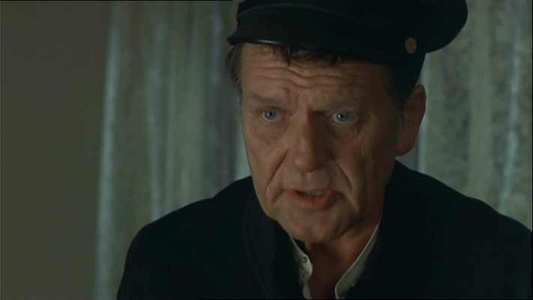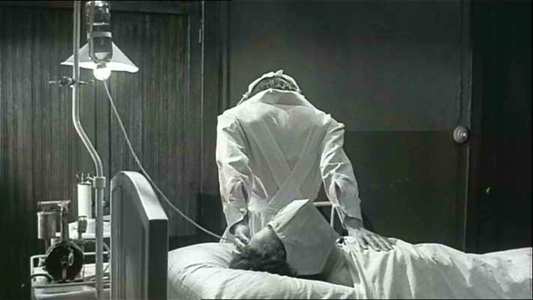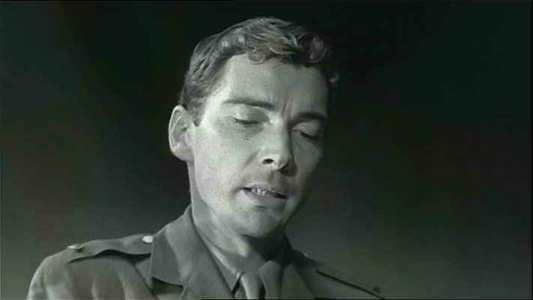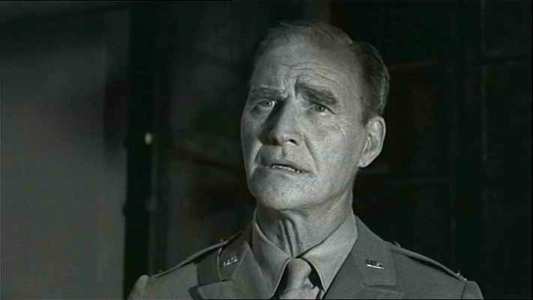Review of Johnny Got His Gun
Introduction
Free speech seems to be in short supply in the land of the free nowadays. If you`re in the media business and have a liberal viewpoint, you have to careful about exactly which opinions you express, lest you find lucrative sources of income drying up. It`s not a new state of affairs though. Writer Dalton Trumbo, who penned such screenplays as Spartacus and Roman Holiday, fell foul of the McCarthy witch-hunt in the fifties and found himself imprisoned and blacklisted for refusing to testify. With the United States forcefully acting as peacemaker in the Middle East, perhaps it`s time for an anti-war movie, and with a certain irony, it`s Dalton Trumbo`s 1971 picture Johnny Got His Gun that`s being released by Arrow.
A young man is brought to a military hospital in World War 1, hideously injured. He`s lost his limbs, and with them all his senses except touch. Cut off from the world, unaware even if he is awake or dreaming, he begins to experience memories and dreams of his life. Through these experiences and conversations, he tries to come to terms with what has happened to him, and find a way to communicate with the doctors treating him, the same doctors who think he is merely a chunk of meat that hasn`t stopped breathing yet.

Video
Johnny Got His Gun is stated on the IMDB as having a 1.66:1 ratio, however this disc presents the film in a 1.85:1 anamorphic transfer. There are moments that you become aware of missing information, but they are few and hardly relevant to the film. The transfer itself is unflattering, with a soft and grainy image throughout, and moments of fairly serious print damage. The current scenes are filmed in stark monochrome, while the flashback and dream sequences are in colour.

Audio
The sound is a simple DD 2.0 English track. It, like the film isn`t in the best of shape. There are moments of hiss and crackle, but the dialogue is clear. This film also lacks subtitles. The film starts of with a black screen and the sound of laboured breathing, and for a brief moment of fancy, I wondered how that would have sounded in surround.

Features
There is one of those nifty little jacket pictures that the player displays when the disc isn`t spinning, but it`s nothing to get excited about, being a copy of the menu design. Nothing of merit though.

Conclusion
Johnny Got His Gun suffers more than most films from the passage of time. As an anti-war movie, the immediate effect is obvious, the idea of a man reduced to what is essentially a slab of meat makes the point clearly enough, and the portrayal of the soldier as the little man, the piece of gristle ground up between the cogs of imperialistic posturing is nothing new. The military is still portrayed as a monolithic institution, uncaring and relentless, and the points that the film tries to make seem somewhat old fashioned now.
Perhaps it`s that the nature of war itself is unrecognisable from the reality depicted in this film. In the eighteenth and nineteenth centuries, wars were imperialistic wars of colonisation, fought against foes that could hardly resist. Today on the other hand, wars are exercises in media management and public relations. The news camera is perhaps the strongest weapon on the battlefield, and where once governments could afford to spend the lives of its children in the tens of thousands, now the loss of a hundred is considered a defeat. We live in the age of the push button war, loaded with jargon and rendered safe with high technology. Wars of liberation are fought, where collateral damage must be kept to a minimum. When there is only one superpower on the global scene, war is less about winning; it`s more about doing it humanely. Johnny Got His Gun is a reactionary piece to Vietnam, the last of the kind of wars where nations futilely spent the blood of their children for insignificant gains. Beginning with the First World War, where millions lost their lives, fighting over an inconsequential stretch of mud, to the wars fought by proxy during the Cold War, where the superpowers choice an ideological battlefield and armed their faction of choice. Johnny Got His Gun belongs to that period of history, and seems somewhat out of place today.
The film is also dated in terms of dialogue and style. The moment where the soldier Joe, learns that he has lost his limbs is one that you would expect to be horrifying, yet the dialogue is such that I found myself giggling at the inanity of it. Joe`s visions too are steeped in that last gasp of sixties surrealism, that slightly left field way of looking at things that is supposed to stand in for all sorts of twisted unreality, whether it`s the old Batman series or Prisoner. However the conversations Joe has with his imaginary Jesus Christ, played here by Donald Sutherland were certainly interesting, and I wish that aspect had been explored further.
In the end, Johnny Got His Gun`s philosophy comes across as trite and old-fashioned, especially in this day of wars being media events and motivated more by corporate greed than nationalistic fervour. When you have dictators being armed by the very nations who will soon topple them from power, you need a more biting commentary and incisive wit to inform, than this film has to offer. Johnny Got His Gun is a curiosity at best.
Your Opinions and Comments
Be the first to post a comment!